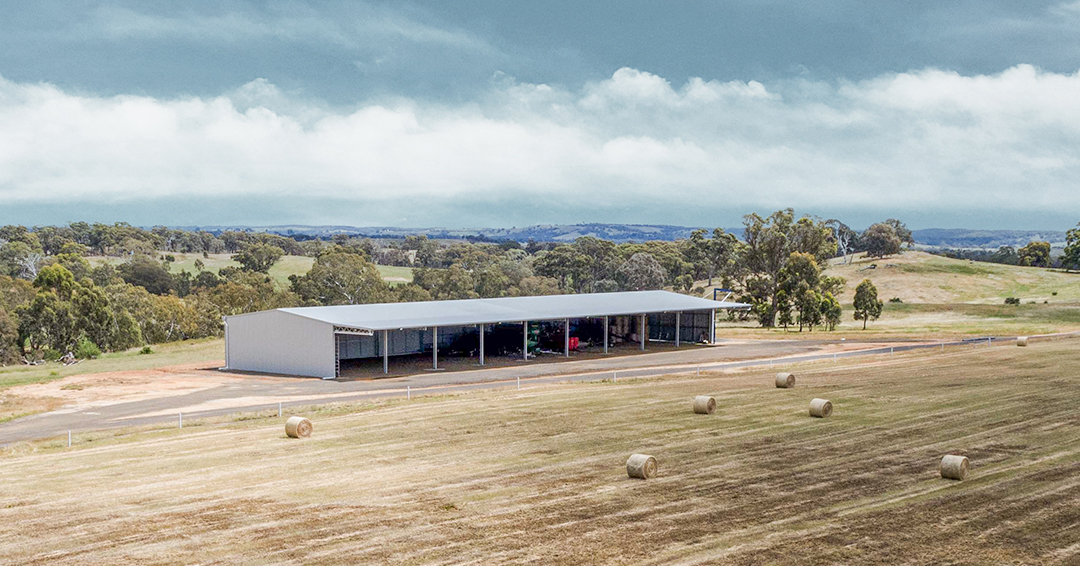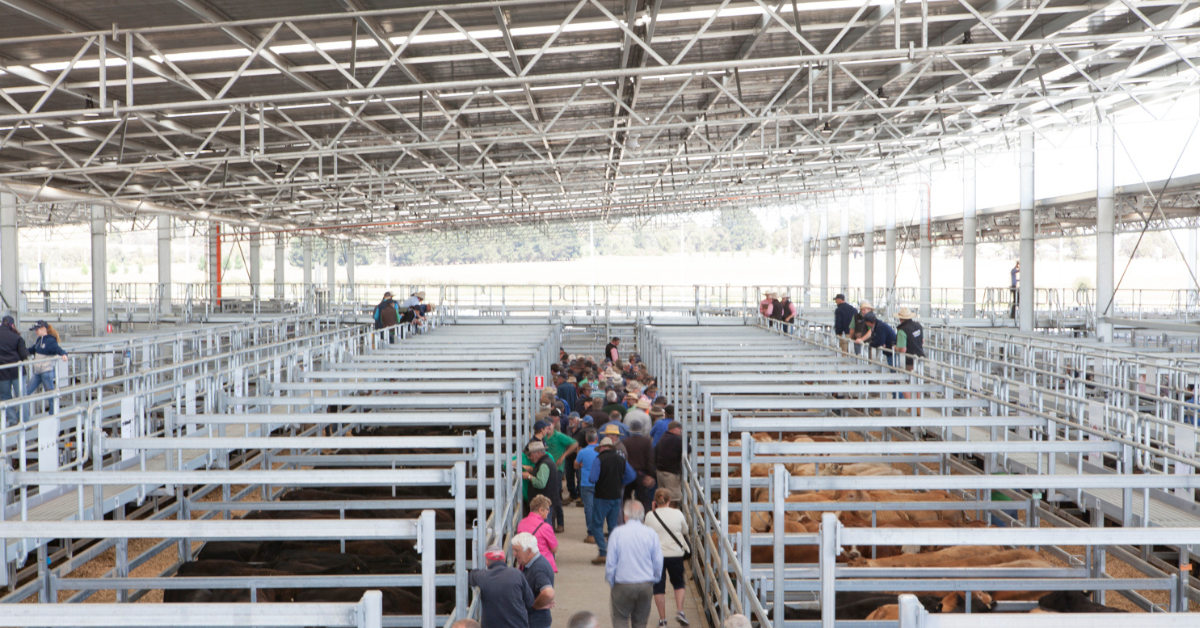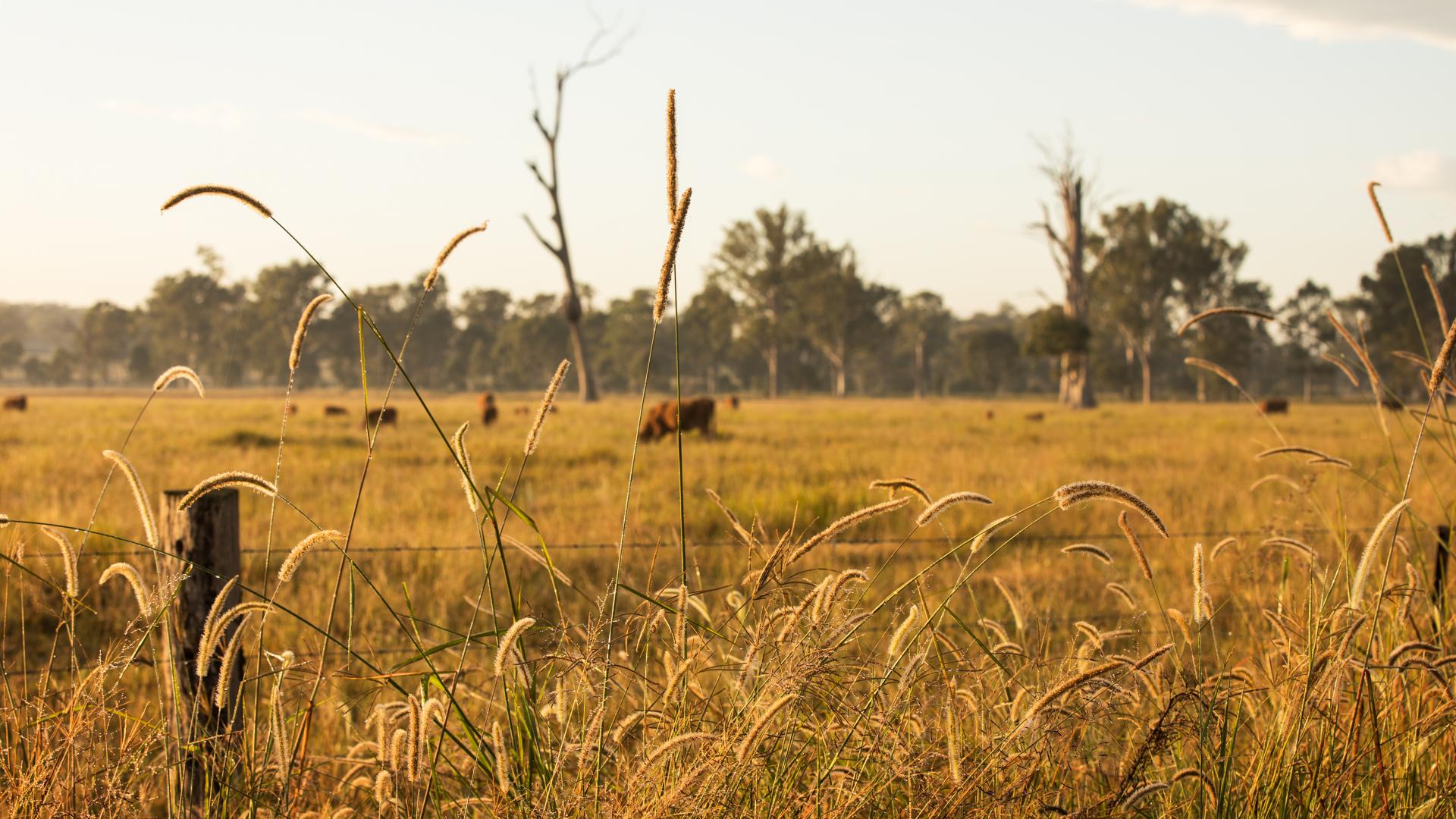Saleyards: More Than a Market
For generations, saleyards have been a cornerstone of Australia's rural communities—a place where livestock are traded, friendships are forged, and...

With a solution-focused approach, we collaborate closely with clients and consultant teams to align on scope, time frames, design objectives, and cost. We’re committed to delivering a strong return on your investment. Are you interested in our work in the commercial and industrial sectors?

Our client, a vet and sheep farmer, needed a shearing shed and yard cover designed for efficiency and innovation. Partnering with our team, he collaborated with fit-out providers to create two custom steel structures tailored to his farm’s needs. His farm is now equipped for better working conditions and long-term success.

Providing Industry-Leading Steel Building Solutions
Central Steel Build, committed to innovation, quality, and customer satisfaction, has solidified its reputation as an industry leader. We're revolutionising agricultural structures, and transforming how farmers and producers approach building solutions. If you’re interested in our work in the agricultural sector, read the article to discover how we’re transforming building solutions.

Oritech combined office and warehouse
Oritech Pty Ltd partnered with us to build a modern office and warehouse facility in Mitchell Park, Victoria. The design featured innovative L-shaped tilt panels for both function and style. Using our Pro. building approach, we delivered a durable, cost-effective, high-quality solution. Seamless collaboration ensured the project was completed on time and within budget.
3 min read
![]() Central author
Jun 5, 2025 7:00:00 AM
Central author
Jun 5, 2025 7:00:00 AM

From South Australia’s Eyre Peninsula to the western districts of Victoria, many rural communities are enduring a mix of harsh dry spells and deceptive “green drought” conditions. It’s a complex picture: satellite data and rainfall records show ongoing rainfall deficiencies, with winter rainfall totals across 2024 and 2025 well below average across much of southern Australia - and few clear signs as to when conditions will shift.
As the Bureau of Meteorology and Australian Government drought briefings indicate, the recovery from these conditions will take more than a good season. For many areas, even consistent rain wouldn’t reverse the economic and emotional pressures that have already set in.
These burdens are more than agricultural—they affect every corner of rural Australia. Farmers and their families are weighing not just financial decisions, but whether to send children away to find work, how to keep community sports alive, and how to explain tightening budgets at home.
Across these areas, relief organisations like Rural Aid and the Rural Financial Counselling Service (RFCS) are active on the ground. Rural Aid counsellors often hear a common refrain: “People in the city don’t understand.” That sense of disconnection can deepen the strain of an already difficult situation.

When the rain doesn’t come, margins disappear. The cost of carting water rises. Feed becomes scarce. Hay and grain prices climb. Farmers are pushed into hard sale decisions—sometimes at losses that echo into future seasons.
On top of this, prolonged uncertainty, financial pressure, and isolation take a quiet toll on mental health. Many won’t reach out until crisis point. Programs such as Rural Minds, Lifeline, and Rural & Remote Mental Health offer targeted help—from digital resources to on-farm workshops - while Look Over the Farm Gate, supported by Agriculture Victoria, funds community wellbeing events.
Financial strain is made worse when policy adds pressure. In Victoria, the recent emergency services levy sparked fierce backlash. Farmers already struggling with drought were asked to pay more. Protests followed, volunteers stepped back, and councils resisted enforcement. The levy increase has now been paused for the financial year, a decision driven by rural voices pushing back. Concerns about the future of the levy remain, with industry groups arguing for it to be scrapped altogether.
It’s a clear signal that these communities aren’t waiting for change—they’re demanding it. Groups like the Victorian Farmers Federation (VFF) are stepping up with practical, farmer-driven policy frameworks, created in collaboration with Agriculture Victoria, to make sure future decisions better reflect lived reality.

The On-Farm Drought Infrastructure Grant Program offers up to $5,000 in matched funding for projects like tanks, pipes, troughs, feed storage and containment areas. The program is expanding to cover additional regions.
Start here: agriculture.vic.gov.au/droughtsupport
Eligible producers in drought-affected LGAs can access grants of up to $1,500 through Rural Business Support, in addition to financial counselling and small business relief.
Details: pir.sa.gov.au/emergencies_and_recovery/drought
The Rural Financial Counselling Service (RFCS) is a long-standing federal program offering free, confidential financial guidance for farms and rural businesses.
Federal government assistance has also recently expanded, including a $36M commitment to further drought response measures and farm household allowances.
Government aid is available—but not always straightforward. That’s why the role of non-government groups is indispensable. These groups often provide fast, flexible assistance, and a deep understanding of regional needs.
Some of the most active include:
Rural Aid – providing financial assistance, fodder drops, and free on-farm counselling.
Blaze Aid – helping rebuild fences and infrastructure after disaster events, with volunteer support.
Rapid Relief Team – delivering food boxes, water relief, and drought support packs to struggling families.
Farm Angels – offering tailored help to farming families and promoting mental wellbeing.
RFCS Network – federally funded, it functions with localised delivery and deep community knowledge, providing financial coaching and mediation assistance.
These organisations also function as advocates, constantly engaging with policymakers to push for better support mechanisms based on what they see on the ground.

At Central Steel Build, we work in partnership with farming communities across Australia. We’ve built sheds, arenas, and infrastructure that house livelihoods. We see the resilience of rural Australians every day—and understand the weight drought places on individuals, families, and entire towns.
And we also see how powerful these communities are in shaping their own futures. From regional volunteers rebuilding fences, to farmer-led groups pushing for smarter policy, it’s clear: solutions don’t just come from above. They start on the ground, in the paddock, around kitchen tables, and in the voices of those living it every day.
Lifeline on 13 11 14
MensLine Australia on 1300 789 978
Beyond Blue on 1300 224 636
Brother to Brother on 1800 435 799
Kids Helpline on 1800 551 800

For generations, saleyards have been a cornerstone of Australia's rural communities—a place where livestock are traded, friendships are forged, and...

Government grants and funding for community sports building Sport and Recreation Victoria is offering a supportive Community Sports Infrastructure...

The current drought that is spread over most of Australia is one of the worst we have seen in many years. Unfortunately the hard working rural...